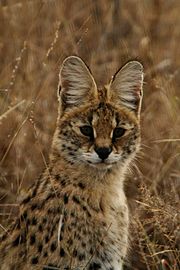
No, we're not talking about a hot dog stand. We're talking about the endangered dogs of Dairyland Racetrack, discussed in an earlier post. I learned the following from a Nov. 21 blog post in the Chicago Reader:
If you're on Twitter or Facebook, you've probably already come across the message that Dairyland racetrack in Kenosha is closing and "900 Greyhounds need to be adopted or they will be euthanized." It's been shared and retweeted so many times by so many people that finding the original author is an exercise in futility.Those fifty dogs were all over the news.But according to Ellen Paulus, president of the Wisconsin chapter of Greyhound Pets of America, the largest nonprofit group for greyhound adoption in the country, it's not true. "Wisconsin law mandates that no dogs can be put to sleep in our state just because their racing careers are completed," she e-mailed me. "Dogs have 3 options: transfer to another track to continue racing, go into adoption programs, or be signed back [to] their owners...."
In addition to Dairyland's adoption center, the Wisconsin Division of Gaming lists 51 adoption groups —including seven in Illinois—that have been approved to take the dogs. Paulus anticipates that "the majority of the dogs will be placed through the groups closest to the track: Dairyland's Adoption Center, GPA-Wisconsin, Greyhounds Only, Midwest Greyhound Adoption and Greyhound Alliance."
Fifty dogs are scheduled to be sent to adoption programs on the east and west coasts in early December.
And from the Letters section of the Chicago Reader (Nov. 26):
"Operation Dairyland"—the closing of Dairyland Greyhound Park—can be followed at a Web site hosted by the Greyhound Alliance: www.greyhoundalliance.org. The site provides the most recent information/status of the closing. Dogs that are available to adoption groups are posted and regularly updated; most of the dogs will be moved to groups after 1/1/10. There is a link for individuals interested in adopting to find their local adoption organization. Upcoming hauls, fundraising events, and news will be posted. Individuals can donate to support the dogs and subsidize transportation, and 100% of donations will go to the dogs. Thus far, there has been (as we expected and very much appreciate), a fantastic outpouring of support from the public and the greyhound adoption network.Wonderful news. Coincidentally, I recently heard a financial advisor refer to pets as a "money pit." As any dedicated pet person knows, Sparky and Miss Puddins are far from being a bad investment. In fact, studies show the myriad benefits of having a pet. This morning, in my optometrist's office, I was paging through the March 2008 issue of National Geographic Kids. I came across an article professing "Dogs Are Good Medicine":
One of the most recent discoveries about dogs is how good they are for people. People with dogs are healthier and have fewer colds, sore throats, and stomachaches. Petting a dog [or cat] helps reduce anxiety, and lowers heart rate and blood pressure.In order to enjoy your pet, you have to take care of it. Some people are pretty cavalier in that department. Recently, a neighborhood cat was done in by a coyote. Some residents took offense at the owners letting the cat out, thereby putting it in danger. The owners responded in the local paper (the Beverly Review):
Our cats are and were in excellent health, properly groomed and clean... [critics'] insistence that the cat would roam if outside is entirely incorrect. Our cat always stayed on our property and was killed on our back patio.This from petplace.com:
Today cats live longer than ever. Just 20 years ago the life expectancy of a cat was four to six years; today they live 15 years or more. Life expectancy in cats depends on many things, but the most important factor is whether he is an indoor-only cat or an outdoor cat. Life expectancy varies significantly between the two.You're not doing your cat any favor by letting it outside (whether or not a coyote's on the loose... though coyotes did raise Pecos Bill).Indoor cats generally live from 12-18 years of age. Many may live to be in their early 20s. The oldest reported cat was 28 years old at the time of death. Outdoor cats generally live to be around four to five years of age. Their deaths are typically due to traumas such as being hit by a car or dog attacks. Outdoor cats are also more susceptible to several deadly viruses that are spread by fighting or prolonged intimate contact with an infected cat.
Finally, in my last visit to Animal Krackers (the pet store where I buy my supplies) the clerk told me about the Savannah cat -- a hybrid between an American domestic and an African serval. Like their savanna-dwelling cousins, the Savannah can grow up to 30 lbs. (some servals top 50 lbs.). As you can see, these cats (like their savanna-dwelling cousins) are stunners. Just be ready to drop some serious change if you want one.




No comments:
Post a Comment